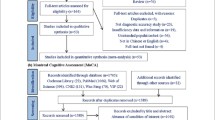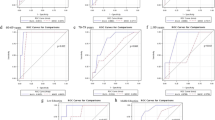Abstract
We aimed to evaluate whether the performance of the mini-mental state examination (MMSE) could identify risky mild cognitive impairment (MCI). We recruited 122 amnestic MCI-single domain (ASM), 303 amnestic MCI-multiple domains (AMM), and 94 non-amnestic MCI (NAM). Two-step cluster and linear discriminant analyses were used for identifying the clusters of the MMSE with age and education, as well as establishing prediction models for each cluster. Conversion into dementia was compared among clusters. Cluster analyses revealed the following three: cluster 1 = 205 AMM (100 %); cluster 2 = 61 NAM (33.3 %) and 122 ASM (66.7 %); and cluster 3 = 33 NAM (25.2 %) and 98 AMM (74.8 %). Cluster 3 showed a significantly lower ability with regards to orientation to time and place, registration of three words, attention/calculation, language, and copying interlocking pentagons, than clusters 1 and 2. However, for delayed recall, cluster 1 was significantly more impaired than cluster 2. Patients in the cluster 1 showed the most common conversion into dementia [odds ratio (OR) = 2.940 vs. cluster 2, OR = 2.271 vs. cluster 3]. This study showed that clustering by performance in MMSE could help define groups at higher risk for conversion to dementia. Therefore, MMSE can be considered as a promising screening tool including subtyping for MCI when detailed neuropsychological tests are not feasible.



Similar content being viewed by others
References
Petersen RC, Smith GE, Waring SC, Ivnik RJ, Tangalos EG, Kokmen E (1999) Mild cognitive impairment: clinical characterization and outcome. Arch Neurol 56:303–308
Folstein MF, Folstein SE, McHugh PR (1975) “Mini-mental state”. A practical method for grading the cognitive state of patients for the clinician. J Psychiatr Res 12:189–198
De Marchis GM, Foderaro G, Jemora J, Zanchi F, Altobianchi A, Biglia E, Conti FM, Monotti R, Mombelli G (2010) Mild cognitive impairment in medical inpatients: the mini-mental state examination is a promising screening tool. Dement Geriatr Cogn Disord 29:259–264
Moretti F, De Ronchi D, Palmer K, Forlani C, Morini V, Ferrari B, Dalmonte E, Atti AR (2013) Prevalence and characteristics of mild cognitive impairment in the general population. Data from an Italian population-based study: the Faenza project. Aging Ment Health 17:267–275
Palmqvist S, Hertze J, Minthon L, Wattmo C, Zetterberg H, Blennow K, Londos E, Hansson O (2012) Comparison of brief cognitive tests and CSF biomarkers in predicting Alzheimer’s disease in mild cognitive impairment: six-year follow-up study. PLoS One 7:e38639
Xie H, Mayo N, Koski L (2011) Predictors of future cognitive decline in persons with mild cognitive impairment. Dement Geriatr Cogn Disord 32:308–317
Mitchell AJ (2009) A meta-analysis of the accuracy of the mini-mental state examination in the detection of dementia and mild cognitive impairment. J Psychiatr Res 2009(43):411–431
Wind AW, Schellevis FG, Van Staveren G, Scholten RP, Jonker C, Van Eijk JT (1997) Limitations of the mini-mental state examination in diagnosing dementia in general practice. Int J Geriatr Psychiatry 12:101–108
Moon SY, Na DL, Seo SW, Lee JY, Ku BD, Kim SY, Park KW, Shim YS, Youn YC, Chung CS, Cheong HK, Choi SH, Cha KR, Kim JE, Jeong JH (2011) Impact of white matter changes on activities of daily living in mild to moderate dementia. Eur Neurol 65:223–230
Ahn HJ, Chin J, Park A, Lee BH, Suh MK, Seo SW, Na DL (2010) Seoul neuropsychological screening battery-dementia version (SNSB-D): a useful tool for assessing and monitoring cognitive impairments in dementia patients. J Korean Med Sci 25:1071–1076
Oh E, Kang Y, Shin JH, Yeon BK (2010) A validity study of K-MMSE as a screening test for dementia: comparison against a comprehensive neuropsychological evaluation. Dement Neurocogn Disord 9:8–12
Petersen RC, Parisi JE, Dickson DW, Johnson KA, Knopman DS, Boeve BF, Jicha GA, Ivnik RJ, Smith GE, Tangalos EG, Braak H, Kokmen E (2006) Neuropathologic features of amnestic mild cognitive impairment. Arch Neurol 63:665–672
Guo QH, Cao XY, Zhou Y, Zhao QH, Ding D, Hong Z (2010) Application study of quick cognitive screening test in identifying mild cognitive impairment. Neurosci Bull 26:47–54
Hunderfund AL, Roberts RO, Slusser TC, Leibson CL, Geda YE, Ivnik RJ, Tangalos EG, Petersen RC (2006) Mortality in amnestic mild cognitive impairment: a prospective community study. Neurology 67:1764–1768
Nasreddine ZS, Phillips NA, Bedirian V, Charbonneau S, Whitehead V, Collin I, Cummings JL, Chertkow H (2005) The Montreal cognitive assessment, MoCA: a brief screening tool for mild cognitive impairment. J Am Geriatr Soc 53:695–699
Mate-Kole CC, Conway J, Catayong K, Bieu R, Sackey NA, Wood R, Fellows R (2009) Validation of the revised quick cognitive screening test. Arch Phys Med Rehabil 90:1469–1477
Seo EH, Lee DY, Lee JH, Choo IH, Kim JW, Kim SG, Park SY, Shin JH, Do YJ, Yoon JC, Jhoo JH, Kim KW, Woo JI (2010) Total scores of the CERAD neuropsychological assessment battery: validation for mild cognitive impairment and dementia patients with diverse etiologies. Am J Geriatr Psychiatry 18:801–809
Acknowledgments
This study was supported by a grant of the Korea Healthcare technology R&D Project, Ministry of Health and Welfare, Republic of Korea (HI10C2020).
Author information
Authors and Affiliations
Corresponding author
Rights and permissions
About this article
Cite this article
Kim, S.Y., Lim, T.S., Lee, H.Y. et al. Clustering mild cognitive impairment by mini-mental state examination. Neurol Sci 35, 1353–1358 (2014). https://doi.org/10.1007/s10072-014-1711-y
Received:
Accepted:
Published:
Issue Date:
DOI: https://doi.org/10.1007/s10072-014-1711-y




